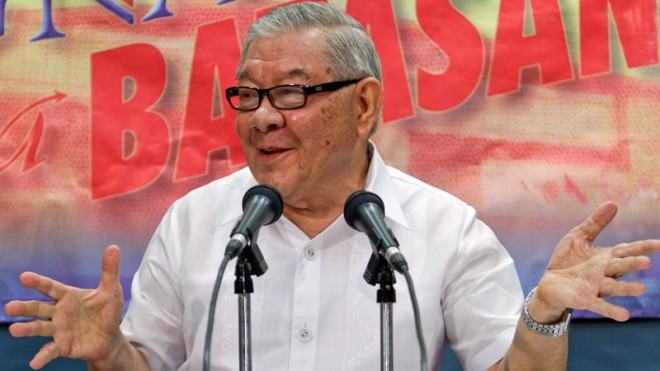Another bill seeking to prohibit political dynasties was filed in the 17th Congress after the measure failed to see light in the previous congresses long dominated by political clans.
Outgoing Speaker and Quezon City Rep. Feliciano Belmonte Jr. filed a bill seeking to prohibit political dynasties in Congress.
In House Bill 166 titled “Anti-political dynasty Act,” Belmonte proposed an enabling law to the provision in the 1987 Constitution that seeks to prohibit the proliferation of political clans.
According to the bill, a political dynasty exists when three or more individuals within the second degree of consanguinity hold or run for national or local office in simultaneous or overlapping terms.
“No two persons within the second civil degree of consanguinity or affinity, whether legitimate or illegitimate, allowed to hold or run for any local or national elective office in the same election,” the bill read.
“No three persons within the second civil degree of consanguinity or affinity, whether legitimate or illegitimate, full or half blood, related to each other shall be allowed to hold or run for any local or national elective office in the same election,” it added.
The bill said aspiring candidates related to each other may settle the decision through a raffle to determine who among them would be allowed to run for office in the same election.
Any person may seek to disqualify a candidate who violated the anti-political dynasty provision of this bill.
READ: FOI, anti-dynasty bills good as dead in 16th Congress
The original dynasty cap of one family member in an elective position was criticized in the 16th Congress for laying off at least 180 members of the 290-strong chamber. On the other hand, a dynasty cap of at least two family members in politics would affect only 60 of 290 members.
Belmonte had filed the bill after the similar measure was killed in the 16th Congress, which saw the bill reach second reading deliberations on the floor.
READ: Belmonte: Anti-political dynasty bill dead in 16th Congress
In his explanatory note, Belmonte said there is a need for an implementing law for Section 26, Article II of the Constitution that reads: “The State shall guarantee equal access to opportunities for public service and prohibit political dynasties as may be defined by law.”
“Almost 30 years have passed without an enabling law to define political dynasties. Meanwhile, the present political landscape is witness to influential politicians and their families, maintaining positions of power for a considerable time,” Belmonte said.
Belmonte added that the concentration of power among a few political clan members “has led to the creation of dynastic reigns by different political families in all levels, from the barangay to the provinces.”
Belmonte, himself a patriarch of a political dynasty in Quezon City, said there is a need to put a cap on political clans to allow others to join the political foray.
“Social justice requires us to provide equal opportunity for all, including the opportunity to serve. Political dynasties make it prohibitive for our citizens to run for public office,” Belmonte said.
“It is thus incumbent upon the House of Representatives and the Senate to provide an enabling law defining political dynasties to give people who do not belong to political dynasties a chance to serve the people,” he added. RAM
